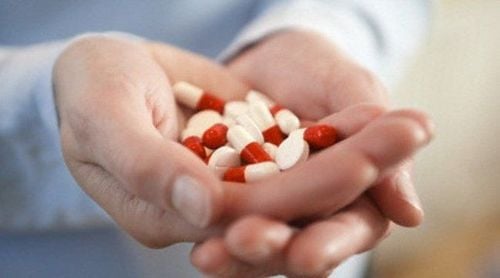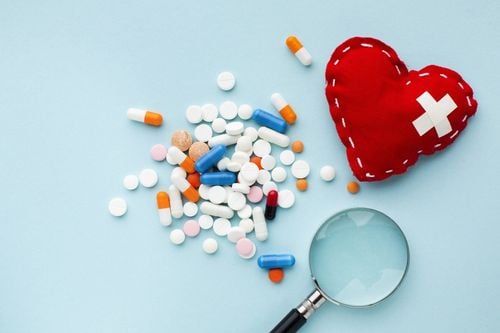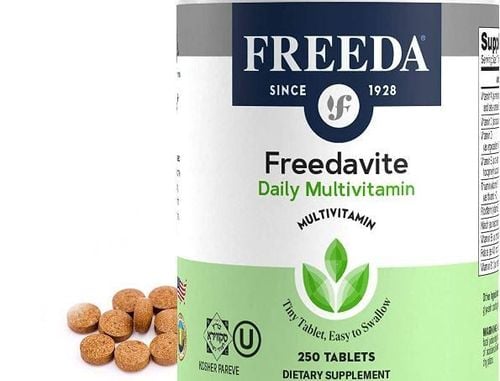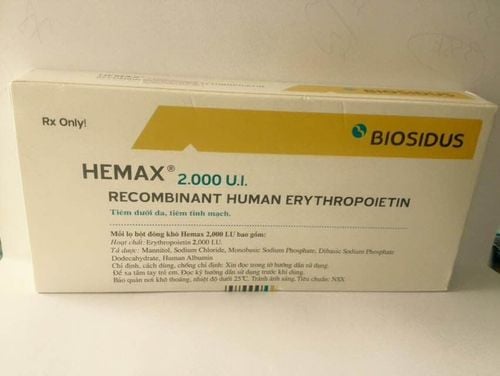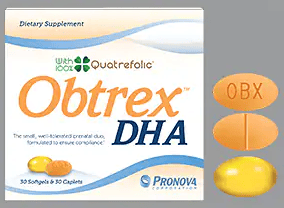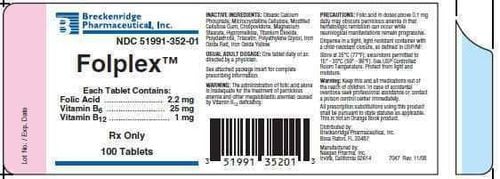This is an automatically translated article.
Dialyvite is a combination of B vitamins used to treat or prevent vitamin deficiencies caused by poor diet, certain diseases, alcoholism, or during pregnancy. Vitamins are important building blocks of the body and help you maintain good health.
1. What does Dialyvite do?
Dialyvite is a combination of B vitamins including thiamin, riboflavin, niacin, vitamin B6, vitamin B12, folic acid and pantothenic acid.Dialyvite is indicated in the following cases:
Vitamin deficiency Prevent vitamin deficiency Mineral deficiency Prevent mineral deficiency.
2. How to use the drug Dialyvite
Dialyvite is to be taken by mouth, usually once daily or as directed by your doctor. Follow all directions on the Dialyvite label. If you have any questions about how to use Dialyvite, ask your doctor or pharmacist. If you are taking Dialyvite chewable tablets, chew the tablet thoroughly before swallowing. If you are taking Dialyvite extended-release capsules, swallow them whole. Do not crush or chew extended-release capsules or tablets. Doing so may release all of Dialyvite at once, increasing the risk of side effects. Also, do not split extended-release tablets unless they are numbered and your doctor tells you to. If you are taking Dialyvite liquid, use the dosimeter carefully. Some liquid products need to be shaken before each medication collection. Some medications that contain vitamin B12 need to be placed under the tongue and held there before being swallowed. Follow the directions on the product label carefully to get the most benefit. Take Dialyvite regularly to get the most benefit from it. To help you remember, take Dialyvite at the same time each day.
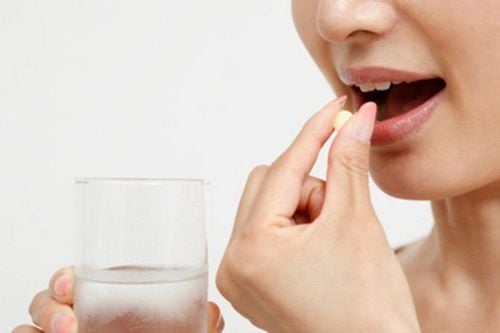
Thuốc dialyvite cần được uống cùng một thời điểm mỗi ngày để tăng hiệu quả
3. Side effects of the drug Dialyvite
During the use of Dialyvite, you may experience mild abdominal pain or flushing. These side effects of Dialyvite are usually temporary and may go away as your body adapts to the medicine. If any of these effects persist or get worse, contact your doctor immediately.
If your doctor has directed you to take Dialyvite, remember that he or she has judged that the benefit to you outweighs the risk of side effects. Many people who use Dialyvite have no serious side effects.
A very serious allergic reaction to Dialyvite is very rare. However, if you notice any symptoms of a serious allergic reaction to Dialyvite, seek immediate medical attention. Those symptoms include: Rash, itching/swelling (especially of the face/tongue/throat), severe dizziness, trouble breathing.
Dialyvite rarely causes unwanted side effects, which include:
Bronchospasm Difficulty concentrating Bewilderment Over excitement Depression Sleep disturbance Loss of taste Decreased appetite Nausea Stomach bloating Stomach upset Feelings Irritability. This is not a complete list of the possible side effects of Dialyvite. If you notice other side effects of Dialyvite not listed above, contact your doctor.
4. Measures to prevent side effects of the drug Dialyvite
Before taking Dialyvite, tell your doctor or pharmacist if you are allergic to any of its ingredients and if you have any other allergies. Dialyvite products may contain inactive ingredients that can cause allergic reactions or other problems.
If you have any of the following health problems, consult your doctor before using Dialyvite:
Diabetes Liver problems Vitamin B12 deficiency (pernicious anemia). Dialyvite tablets or liquid or chewable tablets may contain aspartame. If you have phenylketonuria (PKU) or any other condition that requires you to limit your consumption of aspartame (or phenylalanine), consult your doctor about safely using Dialyvite.
The liquid form of Dialyvite may contain sugar or alcohol. Use this form with caution if you have diabetes, alcoholism, or liver disease. Ask your doctor about safely using the liquid form of Dialyvite in these circumstances.
Tell your doctor if you are pregnant before using Dialyvite. This product is safe to take during pregnancy when used as directed. Some spinal cord birth defects can be prevented by maintaining adequate folic acid intake during pregnancy.
Dialyvite may pass into breast milk. Although there have been no reports of harmful effects of Dialyvite on a nursing infant, consult your doctor before breast-feeding.
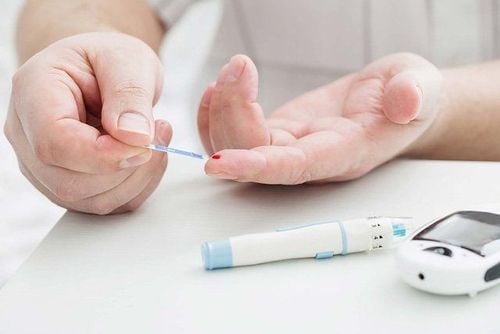
Bệnh nhân tiểu đường nên thận trọng khi sử dụng thuốc dialyvite
5. Dialyvite drug interactions
Drug interactions can change the way Dialyvite works or increase your risk of serious side effects. Make a list of all the medications you take including prescription, over-the-counter and herbal products and share it with your doctor. Do not start, stop, or change the dose of any medicine while you are using Dialyvite, without your doctor's approval. Some drugs that can interact with Dialyvite are: Altretamine, Cisplatin, some antibiotics like chloramphenicol, some anti-seizure drugs like phenytoin, levodopa, other vitamin and nutritional supplements.
Dialyvite may interfere with certain laboratory tests such as urobilinogen, intrinsic factor antibodies,... which may cause false test results. Make sure laboratory staff and all your doctors know you are using Dialyvite.
6. What to do if you overdose or forget to use Dialyvite?
If you or someone else has overdosed on Dialyvite and has severe symptoms such as fainting or difficulty breathing, call 911 immediately. Other symptoms of Dialyvite overdose may include: Stomach pain, nausea, vomiting, diarrhea.
If you are taking Dialyvite on a regular schedule and miss a dose, take it as soon as you remember. If you remember when it is almost time for your next dose of Dialyvite, skip the missed dose. Use your next dose of Dialyvite at the usual time and do not double your usual dose.

Khi uống quá liều thuốc dialyvite, bạn cần được đưa đến gặp bác sĩ để được xử lý
7. How to store the medicine Dialyvite
Refer to storage information printed on the packaging of Dialyvite. If you have any questions about storing Dialyvite, ask your pharmacist. Keep Dialyvite and all other medicines away from children and pets.
Do not flush Dialyvite down the toilet or down the drain unless instructed to do so. Dispose of this product appropriately when it has expired or is no longer needed.
Dialyvite is not a substitute for a proper nutritionally complete diet. Remember that it's best to get your vitamins from healthy foods. B vitamins are found naturally in greens and other vegetables, meat, fish, poultry and nutritious breads and cereals.
Please dial HOTLINE for more information or register for an appointment HERE. Download MyVinmec app to make appointments faster and to manage your bookings easily.
Reference source: webmd.com




